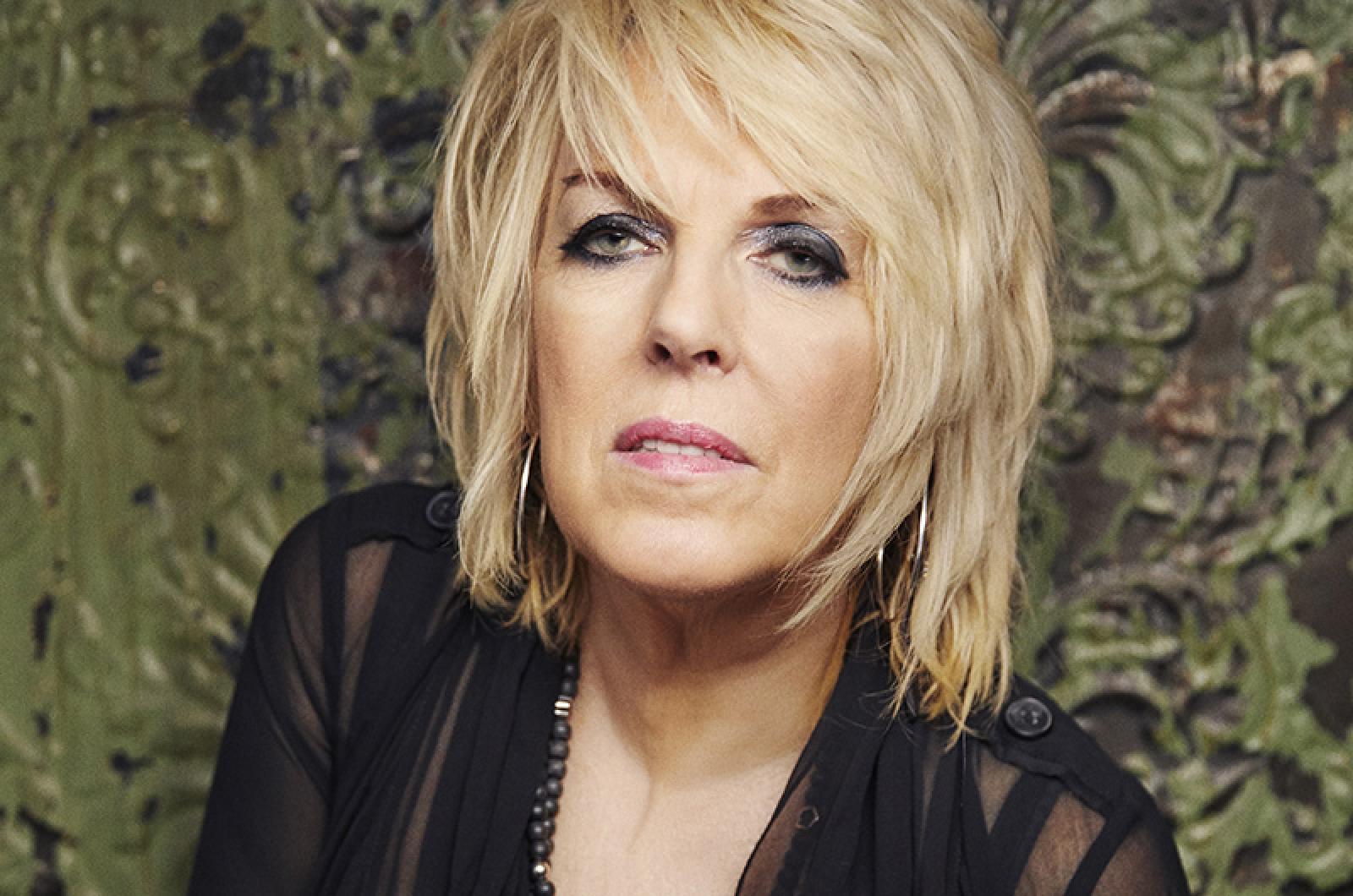High noon in Nashville, where the temperature bounces on either side of 100 degrees, and Lucinda Williams is in her East Nashville home with the shades drawn. The poet queen of roots music — Americana, folk, country, blues, especially rock — was raised in Louisiana where her father Miller Williams taught poetry at Loyola University, and later at the University of Arkansas.
Growing up in sweltering heat, the ashy blond songwriter learned to be still and absorb. Those early lessons still suit the detail-weighted, unfiltered emotion songs that have earned Ms. Williams three Grammys across country, contemporary folk and rock categories, a total of 17 Grammy nominations, and induction into The Austin City Limits Hall of Fame.
On Sunday she plays Beach Road Weekend, beginning at 4:15 p.m., picking up after her friend Emmylou Harris finishes her set. In total, 10 acts perform on Sunday, culminating with Wilco at 6:30 p.m. The music festival opens at Veteran’s Memorial Park on Friday, starting at 10:45 a.m. with the National Reserve and rolling along until the Avett Brothers close out the evening at 6:30 p.m. Saturday acts feature headliners Beck, Billy Strings and Guster.
In addition to touring, Ms. Williams is at work on both a memoir and a new record. Despite suffering a debilitating stroke in 2020, the 69-year-old singer-songwriter remains fiercely committed to making the most of her creative powers.
“Someone said [about the memoir], ‘Lu, you’re not James Joyce. Don’t worry...’,” she says down the phone-line. “I know. But I want to be James Joyce. I don’t want people to buy the book because they know who I am, I want them to want to read the writing.”
She laughs a little, but she’s not joking. Anyone who’s listened to any of Ms. Williams’ 16 albums — from the initial Folkways records from 1979 and 1980 to the breakout self-titled Rough Trade, to Sweet Old World, Car Wheels on a Gravel Road through 2020’s Good Souls Better Angels — understands she always strives to deliver deeply personal excavations of love, obsession, heartbreak, betrayal and the characters she’s met during a life lived fully.
Raised around her father’s literary friends, including Flannery O’Connor, Ms. Williams believes in the power of writing to heal and to unite. Working with her husband Tom Overby, a record industry marketing veteran, they have taken the fallow time of her recovery to harness creative strength for healing.
“We’ve been working for close to a year,” she says. “It’s healing. The recording is a great part of the process. Where having two weeks was how we did it, this has been a whole different process doing a couple days at a time.”
As with the Grammy-nominated Good Souls, Ms. Williams creates very much of the moment. But she laments that the news of the moment seems to linger.
“Good Souls was the news of the day, every day. It was created at the time of the election. Last night, we were sitting on the couch watching the hearings, and it all feels somehow the same. You’re thinking ‘This is the President of the United States...’ I never thought I’d see a President do these kinds of things.”
She pauses, knowing how it might sound. Her voice in conversation is a bit more dusty than the kerosene with which she sings.
“I’ve been feeling this way since I was a teenager in the ‘60s,” she continues. “I was a little radical, singing all these protest songs and going to marches. I was looking for like-minded people, then I found Phil Ochs and Bob Dylan. To me, Masters of War is the best anti-war song ever written.”
Tom Petty, Neil Young and Emmylou Harris, equally potent creative voices, view Ms. Williams as one of the great songwriters of our time. Hearing an album or a concert is like witnessing layers of human truth delivered without flinching. Guitars boil, drums crash, but always it is that voice cutting through a spare kind of rock that defies genre.
“The reason I say these things is because I care,” she says. “And I do care. Steve Earle and I are always saying we consider ourselves to be patriots. It’s why we speak out. There’s power in that.”
Community inspires Ms. Williams. She still tells the audiences who come to the shows about her stroke, because “usually I play guitar, and I don’t right now.”
She worries people might think she is trying to gain sympathy, when all she wants to do is put people at ease and bind them together through music. She knows it’s been healing for her, but she also senses it’s healing for everyone who’s there. “I love to be up onstage, singing Keep On Rocking in the Free World with the entire audience up on their feet, singing with me. I even do the corny rock and roll thing, where I go to the edge of the stage and get one side going, then the other.
“I have to try not to trip over the chords on my way to the edge of the stage, so I don’t fall. But I love doing that because of how it feels. It takes me back to the Civil Rights movement. We’d all sing We Shall Overcome together — and a rush would just run through me. I want to feel that.
“You know, like-minded people singing a song like that is so powerful. And there’s joy. I want to feel that again.”
For more information, visit beachroadweekend.com.







Comments
Comment policy »